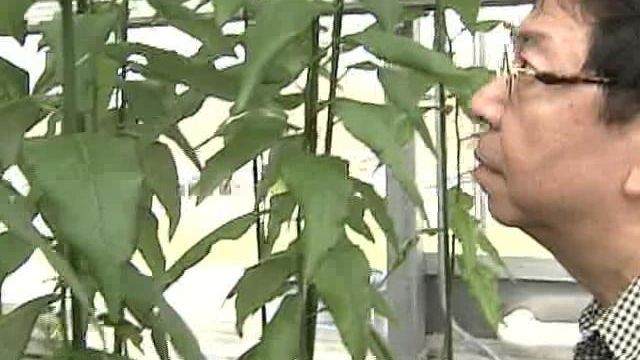Local News
Forestry Prof Says Corn Ethanol Plan Is Barking Up the Wrong Tree
Corn has gotten the biggest buzz in ethanol discussions, but Dr. Vincent L. Chiang has landed a U.S. Department of Agriculture grant to pursue his idea of tree ethanol.
Posted — UpdatedRALEIGH, N.C. — With gas prices on the rise and interest in alternative fuels rising along with them, researchers at N.C. State University are trying to grow solutions, like turning trees into ethanol.
Corn has gotten the biggest buzz in ethanol discussions, but Dr. Vincent L. Chiang has landed a U.S. Department of Agriculture grant to pursue his idea of tree ethanol.
“Corn is not enough, and the problem is not whether corn is a good material to make ethanol or not, There's simply just not enough. We need all kinds of plant material, says Chiang, a professor of forestry and co-director of the school’s Forest Biotechnology Group.
The idea is to make a new breed of tree that grows faster to produce more fuel. The trees in Chiang’s NC State greenhouse have grown over 4 feet in four months.
“It's a better breed of tree so that it can produce more raw material, cellulose. Then the cellulose can be made into glucose, which is then fermented into ethanol,” Chiang explained.
The experiments are going on while other research on ethanol continues. Chiang says he's waiting for advances in ethanol conversion before trying to get his idea on the commercial market.
A conventional pulp tree needs 10 to 15 years to be ready to harvest. Chiang's cellulose-yielding variety is mature in two to three years.
He said he has heard from critics who don't like the idea of cutting down trees for fuel, or who don't like the idea of genetically altering trees.
“What they don't understand is we would produce our specific type of tree on a tree farm, a fiber farm or ethanol farm. We would always be rotating our crop and leave the natural variations alone,” Chiang says.
Some have referred to Chiang’s project as "Woodstock revisited," a reference to the 1969 music festival. He takes it as a compliment.
“I was born in that age, the Woodstock age, so actually, I like that very much,” he says.
• Credits
Copyright 2024 by Capitol Broadcasting Company. All rights reserved. This material may not be published, broadcast, rewritten or redistributed.





